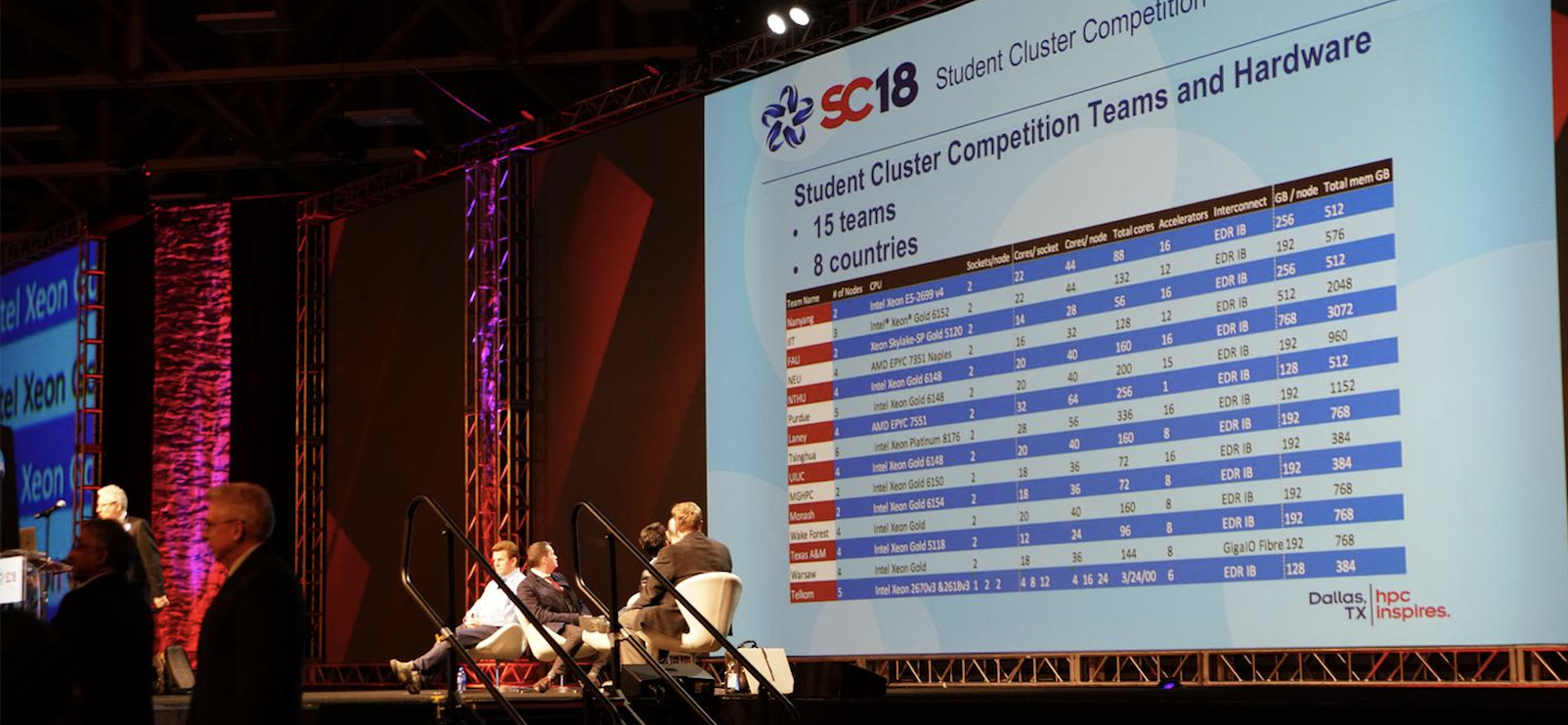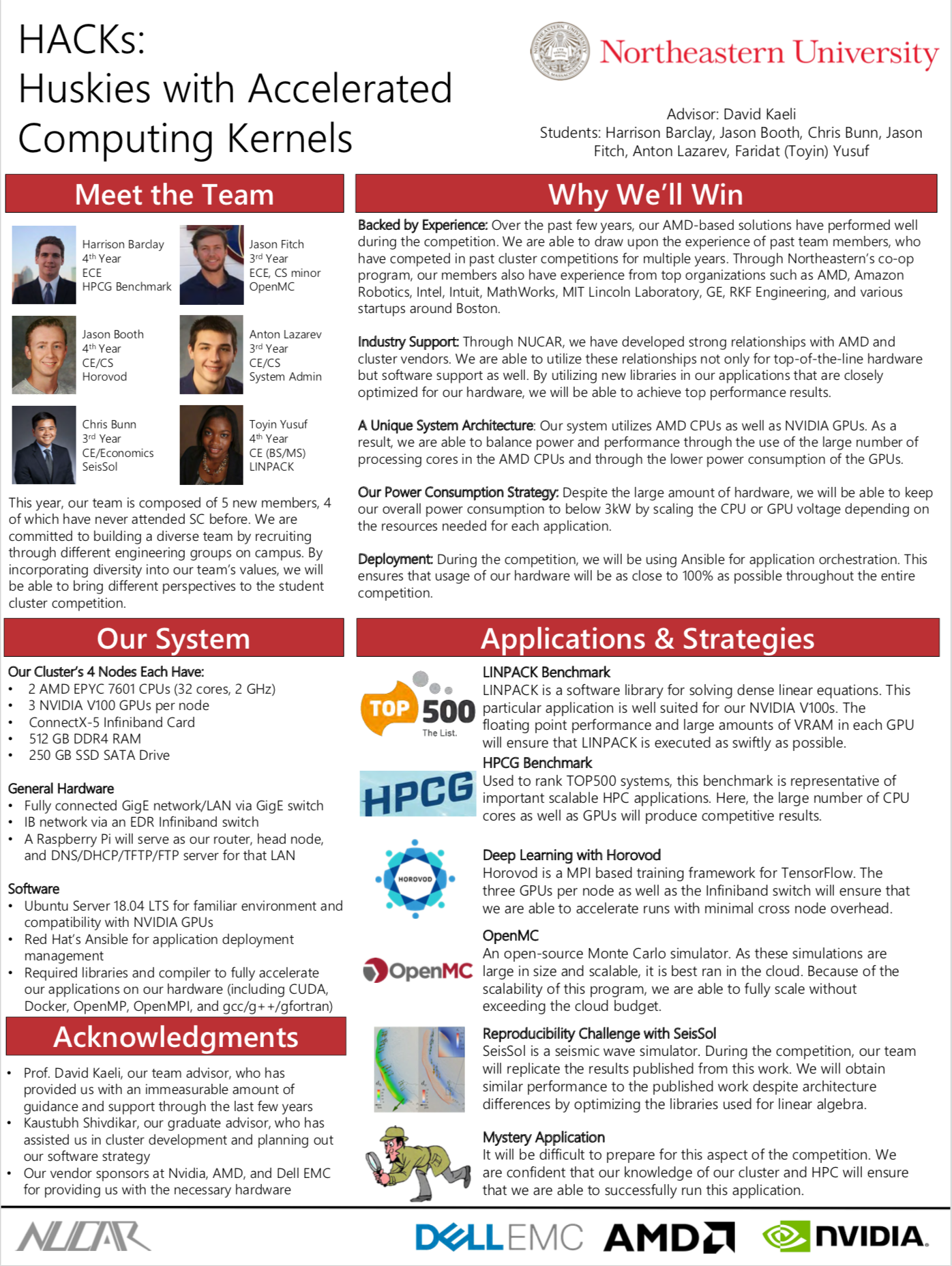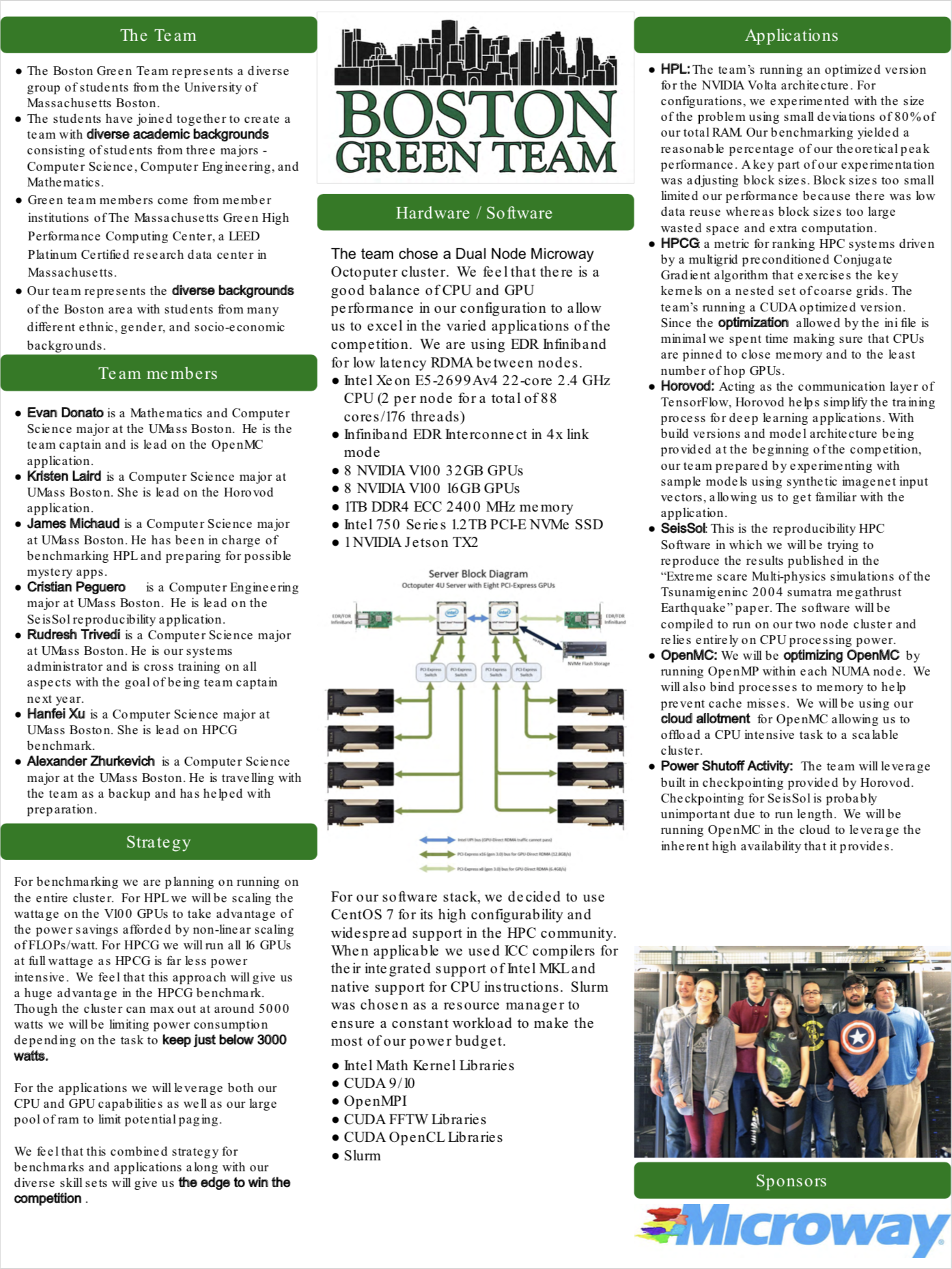
by Helen Hill | MGHPCC News
MGHPCC affiliated teams from Northeastern University and UMass Boston battle for cluster building supremacy at annual HPC competition.
Since 2007 students from around the globe have been pitting their code, their clusters, and themselves against each other in the annual Student Cluster Competition held in conjunction with the SC (Supercomputing) Conference Series.
Among the 14 teams invited to compete in this year’s competition were two with MGHPCC connections: the Huskies with Accelerated Computing Kernels (HACKs) representing Northeastern University, and the Boston Green Team made up of students from the University of Massachusetts, Boston.
Designed to introduce the next generation of students to the high-performance computing (HPC) community, the Student Cluster Competition seeks to teach and inspire students to pursue careers in HPC by exposing them to the breadth of skills, technologies, and science that it takes to build, maintain and utilize supercomputers.
The weeklong event culminates in a real-time, non-stop, 48-hour challenge, during which the teams of undergraduate and/or high school students assemble small clusters on the exhibit floor, and race to complete real-world workloads across a series of applications with the goal of impressing HPC-industry judges.

The Northeastern University team poster. “To gain a competitive edge against their competitors and to stay below the power limit, this year the HACKs cluster leveraged low power AMD CPUs.” Jason explained they also used docker to manage dependencies for each application, which they found to be not only a very useful tool for development and testing but “really great to learn along the way." The 2018 team was mentored by Professor David Kaeli aided by graduate student Kaustubh Shivdikar .

The UMass Boston team's poster: “We chose a cluster with high GPU density after seeing that the planned applications would benefit heavily from this approach. We had two nodes both with 8 NVIDIA V100 GPUs and 2 sockets with 36 Intel Xeon Gold cores on one node and 44 Broadwell on the other,” Kristen explains. “We had a total of 1.2tb ram between the two nodes and used InfiniBand EDR as in interconnect. This setup allowed us to downclock the GPUs on throughput heavy applications like HPL to take advantage of non-linear scaling of FLOPS/Watt performance while still being able to tackle CPU compute tasks well.” The 2018 UMass Boston team was mentored by Ming Ouyang.
This year neither MGHPCC team came out on top - the prize went to the team from Tsinghua University, China, but the value was as much in the opportunity to take part as in winning: “We had many interactions with other teams and have made friendships across the United States and the world,” says Jason. “The students on these teams will become leaders in HPC and are invaluable connections as we progress into our future.”
Story image: courtesy http://www.studentclustercompetition.us